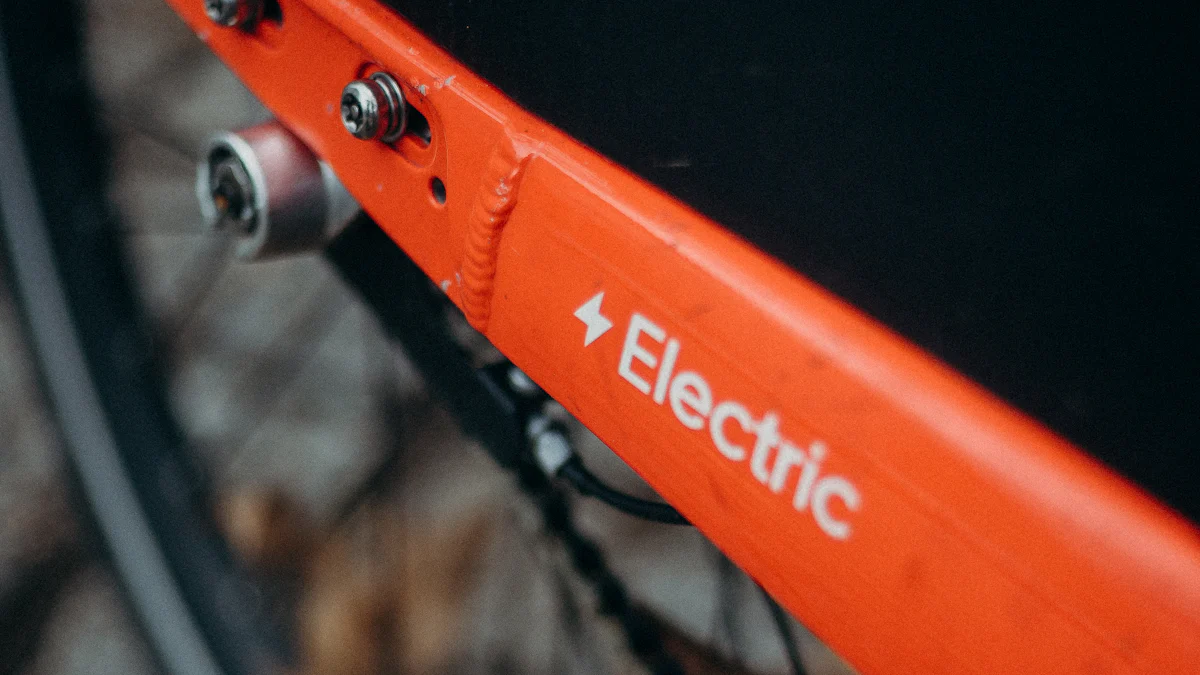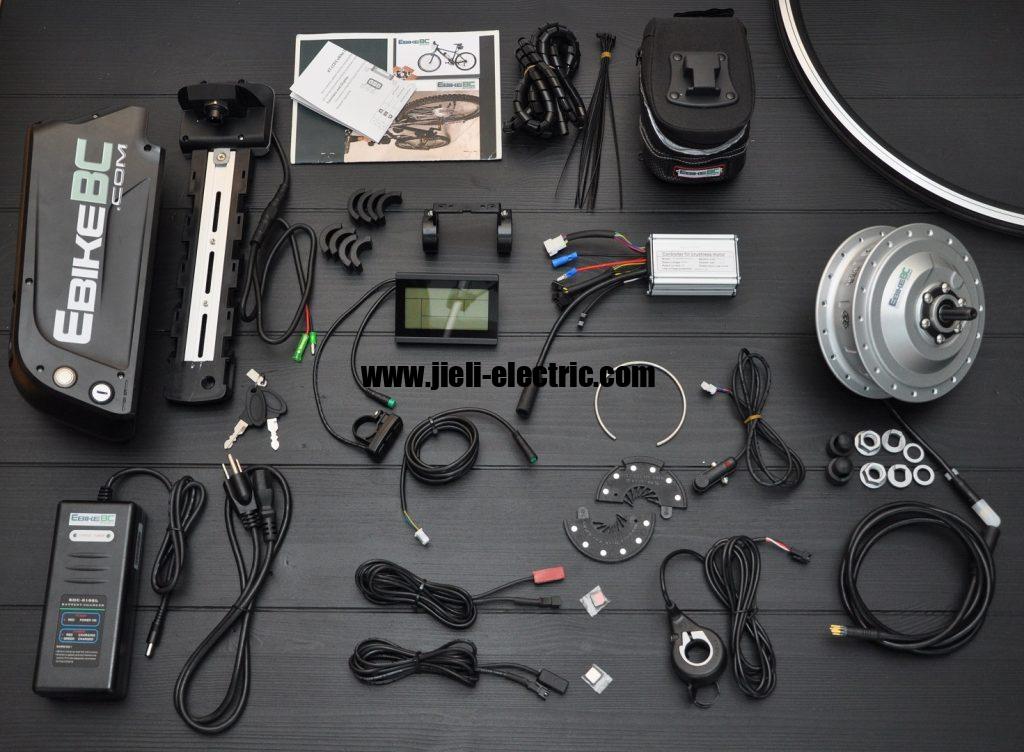
The Biden administration has imposed a 25% tariff on Chinese electric bikes and bike components. Understanding the market impact of this tariff on Chinese electric bikes is crucial. The tariff on Chinese electric bikes represents a significant shift in trade policy, affecting various stakeholders in the e-bike industry. Importers of Chinese-made e-bikes will face additional costs, which could lead to price increases and supply chain disruptions. These changes highlight the importance of analyzing the broader implications of such tariffs on the market.
Background and Context
Overview of the Tariff
Definition and Explanation of the 25% Tariff
The Biden administration has imposed a 25% tariff on Chinese electric bikes and bike components. This tariff applies to all e-bikes and related parts imported from China. The tariff aims to increase the cost of these goods, making them less competitive in the U.S. market. The policy targets Chinese-made battery packs used by e-bikes starting in 2026.
Historical Context of Tariffs on Chinese Goods
Tariffs on Chinese goods have a long history. The Trump administration initially introduced tariffs on various Chinese products, including e-bikes. These tariffs aimed to address trade imbalances and protect domestic industries. The Biden administration has continued this approach, using Section 301 of the Trade Act of 1974 to target Chinese goods. This section allows the U.S. to impose tariffs in response to unfair trade practices.
Reasons for the Tariff
Trade Tensions Between the U.S. and China
Trade tensions between the U.S. and China have escalated over the years. The U.S. accuses China of unfair trade practices, including intellectual property theft and forced technology transfers. These accusations have led to a series of tariffs and counter-tariffs between the two nations. The 25% tariff on Chinese electric bikes is part of this broader trade conflict.
Economic and Political Motivations
Economic and political motivations also play a role in the imposition of tariffs. The U.S. government aims to protect domestic industries from foreign competition. By increasing the cost of imported goods, tariffs can make domestically produced items more attractive to consumers. Politically, tariffs can signal a tough stance on trade issues, appealing to certain voter bases.
Implementation of the Tariff
Timeline of the Tariff Introduction
The timeline of the tariff introduction spans several years. The Trump administration first imposed tariffs on Chinese goods, including e-bikes, in 2018. These tariffs have continued under the Biden administration. Key tariff exclusions, including those on e-bikes, are set to expire soon, leading to the imposition of the 25% tariff.
Legal and Regulatory Framework
The legal and regulatory framework for these tariffs relies on Section 301 of the Trade Act of 1974. This section grants the U.S. Trade Representative the authority to investigate and respond to unfair trade practices. The U.S. Trade Representative published a Federal Register Notice concerning the Section 301 tariffs on China. This notice outlines the legal basis for the tariffs and their implementation process.
Tariff on Chinese Electric Bikes

Impact on Consumers
Price Increases
The 25% tariff on Chinese electric bikes will lead to significant price hikes. Retail prices for e-bikes could increase by several hundred dollars. This increase will affect the affordability of e-bikes for many consumers. The higher costs may deter potential buyers, slowing down the adoption of e-bikes in the U.S. market.
Availability and Choice
The tariff will also impact the availability and choice of e-bike models. Importers may reduce the variety of models they bring into the U.S. market due to increased costs. Consumers will face fewer options when selecting an e-bike. The reduced availability may push some consumers to consider alternative modes of transportation.
Impact on Manufacturers
Cost Implications
Manufacturers will face higher production costs due to the tariff on Chinese electric bikes. The increased costs will stem from more expensive components and materials sourced from China. These higher costs will likely be passed on to consumers in the form of higher retail prices. Domestic manufacturers may struggle to compete with cheaper imports from other countries.
Supply Chain Disruptions
The tariff will cause disruptions in the supply chain for e-bike manufacturers. Many manufacturers rely on Chinese suppliers for key components such as battery packs and motors. The increased costs and potential delays in sourcing these components will affect production schedules. Manufacturers may need to seek alternative suppliers, which could further complicate the supply chain.
Market-Wide Impact

Competitive Landscape
Effect on Domestic E-Bike Manufacturers
The 25% tariff on Chinese electric bikes will create a more competitive environment for domestic e-bike manufacturers. Domestic companies will have an opportunity to capture a larger market share. The increased costs of imported e-bikes will make locally produced models more attractive to consumers. Domestic manufacturers can leverage this advantage to expand their production and improve their market presence.
Domestic manufacturers will also need to adapt to the changing market dynamics. The tariff will likely lead to increased demand for locally produced e-bikes. Companies must invest in scaling their operations to meet this demand. This investment may include expanding production facilities, hiring additional workforce, and enhancing supply chain management.
Market Share Shifts
The imposition of the tariff on Chinese electric bikes will result in significant market share shifts. Imported e-bikes from China currently dominate the U.S. market. The higher prices due to the tariff will reduce their competitiveness. Consumers will seek alternatives, leading to a decline in the market share of Chinese e-bikes.
Domestic manufacturers and importers from other countries will benefit from these shifts. Companies that can offer competitive pricing and quality will capture a larger portion of the market. The shift in market share will also encourage innovation and improvements in the domestic e-bike industry. Companies will strive to differentiate their products to attract consumers.
Long-Term Market Trends
Predictions for Market Growth
The long-term impact of the tariff on Chinese electric bikes will influence market growth predictions. The initial price hikes may slow down the adoption rate of e-bikes. However, the market is expected to stabilize over time. Consumers will gradually adjust to the new pricing structure, and demand for e-bikes will recover.
Market analysts predict that the e-bike market will continue to grow in the long term. Factors such as increasing environmental awareness and government incentives for green transportation will drive this growth. The tariff may also encourage the development of a robust domestic e-bike industry, contributing to market expansion.
Potential Policy Changes
Future policy changes will play a crucial role in shaping the e-bike market. The expiration of key tariff exclusions indicates that the current tariff structure may not be permanent. Policymakers may revisit the tariff on Chinese electric bikes based on economic and political considerations.
Advocacy efforts by industry stakeholders will also influence potential policy changes. Manufacturers, retailers, and consumer groups will lobby for favorable trade policies. These efforts aim to reduce the financial burden on consumers and promote the adoption of e-bikes. Policymakers will need to balance trade protection with the goal of encouraging sustainable transportation solutions.
The 25% tariff on Chinese e-bikes has led to several key findings. The tariff has increased prices and reduced the availability of e-bike models. Manufacturers face higher production costs and supply chain disruptions. Domestic e-bike manufacturers have gained a competitive edge, leading to market share shifts.
The future of the e-bike market will likely see continued growth despite initial price hikes. Environmental awareness and government incentives will drive this growth. Potential policy changes could further shape the market dynamics.
The significance of the 25% tariff extends beyond immediate economic impacts. It highlights the complex interplay between trade policies, market dynamics, and sustainable transportation goals.


